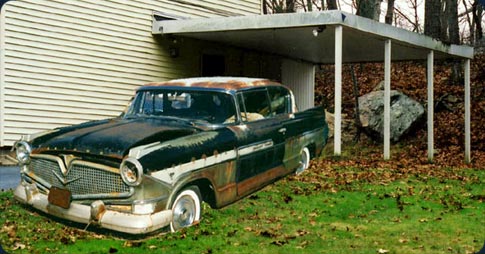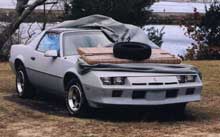Ford’s blockbuster Mustang, of course, begged for a response, but it was three years before The General could raise it. When he did, it was a two-parter, the so-called F-body twins, Chevy’s Camaro and Pontiac’s Firebird. The Firebird, of course, was a tribute to the far-out Firebird I, a concept car of 1952. F-cars were available in plain vanilla and many exotic flavors, from SS to Z-28, HO to Trans Am. Racing driver John Fitch tried his own tuned version, the Fitch Firebird.
A second generation F-mobile debuted in 1970. An alternative to the Trans Am was Firebird’s Formula 400. More civilized than the Z28 was the Rally Sport Camaro. Available only as a coupe, the Gen 2 soon sported a T-roof option.
A Gen-3 series arrived for 1982. Equipped with a nifty glass hatchback, Gen-3s came in all stages of tune from four-cylinder to big honking V8s. They were succeeded in 1993 by a fourth generation of Camaros and Firebirds, and convertibles returned, but after 2002 it was all over. Rumors of a front-drive F-car proved false, and the genre died out with a whimper.
F-cars have long been popular with restorers and rodders. Some, like this tricked-out ’69 Z-28, go way over the top, with hyperactivity disorder and instrument obsession. But there’s a junker syndrome at work, too. It seems that everywhere I go I see dormant and derelict third-gen F-cars. From my office window I can see an ’82 Camaro T-top (not mine), and within a five mile radius are ’84, ’85 and ’91 Camaros, an ’86 Firebird and an ’88-ish Trans Am. They’re all restorable cars, some for sale at bargain prices, but few show the slightest signs of work in progress.
GM’s been showing a new Camaro Concept lately, which may become a production reality soon. I hope it does, but in the mean time won’t somebody please start restoring all those disabled third-generation veterans?

